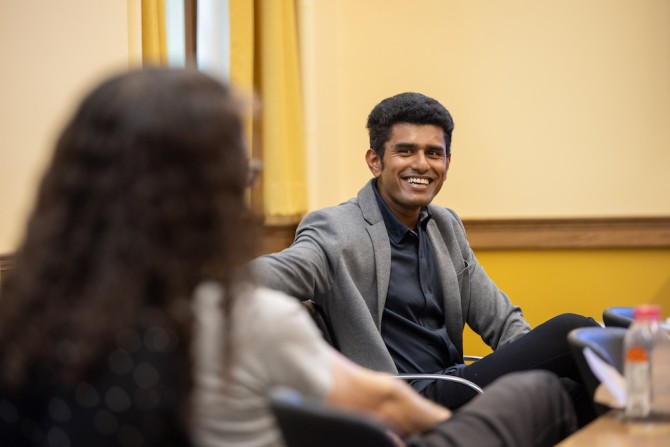News directly from Cornell's colleges and centers
Klarman fellow: How do past events affect the political present?
By Kate Blackwood
After World War II, more than 12 million ethnic Germans were forced to move from across Eastern Europe into postwar Germany, one of the largest forced migrations of modern history. Political scientist Anil Menon wondered how this experience might shape the identity of this group years or even decades later – including the way they vote.
“I’m interested in examining both the organic and artificially constructed ways in which the past impacts the present,” said Menon, a Klarman fellow in government in the College of Arts and Sciences.
As a Klarman Postdoctoral Fellow, Menon is researching the political legacies of forced migration, which is on the rise globally due to climate change and conflict. He contends that forced migrants, as well as other groups of people who have faced trauma, can develop a shared identity grounded in their victimization, which in turn can help mobilize their vote toward parties that champion their grievances.
“Anil’s work on the legacies of forced migration is not only fascinating, but also of really high quality with an interdisciplinary angle,” said Thomas Pepinsky, the Walter F. LaFeber Professor of government, Menon’s faculty host.
Pepinsky added that Menon’s research fits well with Cornell initiatives, especially the Migrations Initiative and various research groups working on the legacies of democratic backsliding and violence.
Read the full story on the College of Arts and Sciences website.
Media Contact
Get Cornell news delivered right to your inbox.
Subscribe

